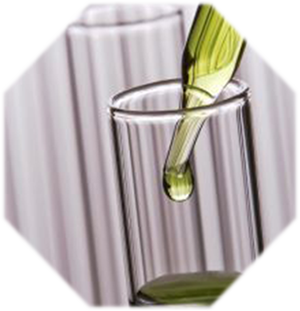 Essential oils are powerful, potent substances. Even though essential oils are natural, they must be treated with the same respect that you would apply to any medicinal product. Understanding the safety principles will allow you to derive the largest benefits from these healing gifts of nature.
Essential oils are powerful, potent substances. Even though essential oils are natural, they must be treated with the same respect that you would apply to any medicinal product. Understanding the safety principles will allow you to derive the largest benefits from these healing gifts of nature.
The first golden rule of essential oils is: do not ever swallow essential oils. They are highly concentrated and in large amounts they can cause harm to the delicate lining of the mouth and digestive tract. In sufficiently large doses, swallowing essential oil may cause a poisoning reaction in the body.
Keep all essential oils well out of reach of children. Children have a tendency to put things into their mouths, and swallowing essential oils can be dangerous. If you suspect that a small child has swallowed an essential oil, it is always prudent to seek medical attention straightaway. Take the bottle of oil with you so that the medical practitioner can advise you properly.
Skin Safety
To avoid irritation, always dilute essential oils in blends with carrier oil.
Sensitization is an allergic reaction causing swelling and extreme itching on the skin. Even if you do not normally have sensitive skin, be aware that allergies can be spontaneous – it is impossible to predict when or if people will react to essential oils.
If you suspect you may have an allergy to a particular oil, or if your skin is very sensitive, first do a simple patch test:
Put 3 drops of the oil in 10ml / 2 tsp carrier oil and massage a small amount of this blend into the skin on the inside of your arm. Cover the area with a hypoallergenic Band Aid and leave it there overnight. Remove it in the morning – if the skin looks normal, then the oil is safe for you to use.
There are two essential oils that can be applied directly on the skin without carrier oil: Lavender and Tea Tree. You can use neat Lavender as first aid for burns, cuts and insect bites, and you can use Tea Tree in the same way to treat pimples, cuts, insect bites and warts.
Dealing with skin reactions:
If you have a reaction to an essential oil blend, wash it off with unfragranced soap and apply a plain carrier oil, such as grapeseed, to calm the area.
Safety for Pregnancy, Babies and Children
- Safety During Pregnancy
Do not use any massage blends with essential oils or any oils in your baths until after your first three months of pregnancy.
Massage blends in pregnancy should contain half the numbers of drops of essential oils in any normal blend.
Essential oils will pass through the skin and be experienced also by the baby, therefore, do not add or change the following recommended oils.
The following oils are all soothing and relaxing, so are ideal for massage after the first three months of pregnancy:
Australian Sandalwood, Benzoin, Roman Chamomile, Cypress, Geranium, Ginger, Grapefruit, Jasmine, Lavender, Lemon, Mandarin, Neroli, Palmarosa, Patchouli, Rose Otto, Sweet Orange, Tangerine, Ylang ylang.
- Safety for Babies and Toddlers
Never use essential oils on babies younger than three months old. Once a baby has reached three months, you can use 1 drop of just one essential oil diluted in 20 ml / 4 tsp carrier per massage application or baby bath. The following four essential oils are safe for babies and toddlers:
- Roman chamomile (to heal a sore bottom)
- Lavender (to aid sleep and soothe the skin)
- Neroli (to calm fretfulness)
- Rose otto (to moisturize the skin)
Note: do not use any treatment “just in case”. It is best to wait until a problem develops. The babies defense system and immune system must develop naturally and in good time with as little human intervention as possible.
Safety in the Sun
Some oils – mainly from the peel of certain citrus fruits – contain biochemical ingredients that can cause a skin reaction under exposure of UV rays from the sun or sunbeds. These oils are known as “phototoxic”, meaning they may cause irregular patches of dark tanning, or in severe cases, actual burns.
The following oils are phototoxic:
- Bergamot
- Lemon
- Angelica root
- Grapefruit
- Lovage root
- Lime
Research has shown that the essential oils of sweet orange, tangerine and mandarin are not phototoxic, and that you can apply them to skin exposed to UV rays with no problems.
People Prone To Epilepsy
In therapeutic trials with epileptic subjects, strongly camphor-rich essential oils such as spike lavender, rosemary or yarrow have been shown to slightly increase seizure rates, whereas relaxing essential oils such as lavender, and ylang ylang have been shown to reduce seizure rates and even help prevent seizures altogether. Two other essential oils that are best avoided for people prone to epilepsy are hyssop and fennel.
If you appreciate the information provided,
please help keep this website running. Blessings!
© 2008-2025 aromaworx.ca. All rights reserved.

